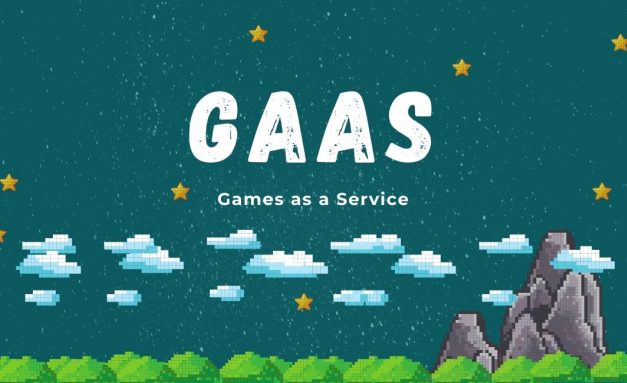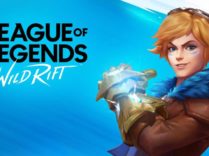STORIES THAT ENCHANT THE MIND
Games as a Service Model is Garbage and Here's Why
The Issues with Marvel's Avengers Game
In case you’re not caught up with the news surrounding Marvel’s Avengers, the game launched to lukewarm reviews. The key reasons for the mixed reception have been lack of content, uninspired story and bland progression.
Now the game’s player base is dwindling causing matchmaking problems across the board for all platforms. Does this story sound familiar? Let me spell it out for you: it’s Anthem all over again.
In fact, it’s almost every Games as a Service (GaaS for short) story beat for beat. Game gets hyped either because of its source material or the studio behind it. Game turns out to be using the GaaS model. Game releases with minimal content and a roadmap. Game userbase dwindles. Studio scrambles to do something.
This is clearly becoming an unhealthy state of affairs and it’s ruining the potential certain games have to truly shine, all in the name of making a game that will keep people playing and, hopefully, paying.
What is GaaS?
More than likely you’re familiar with the GaaS model in practice but maybe not in name. In essence, a GaaS game is a continuously evolving game.
It provides players with more content, progression, activities and rewards to keep them playing. On paper, it sounds like a good thing, right? We’ve all played a game we wished would have more content so we can continue to play said game.
In reality, it’s one of those “be careful what you wish for” desires that only end up fueling publishers’ motivation to come up with new ways to nickel-and-dime players. The base root of the GaaS model lies in the old MMORPG subscription model. World of Warcraft has managed to keep players paying a monthly fee for over a decade on top of charging for annual or bi-annual expansions.
There’s a clear distinction here, though. WoW is a MASSIVELY MULTIPLAYER Online RPG. Players are surrounded by other players in a world that is continuously populated and evolving. Substantial free content and updates get dished out regularly. The GaaS model, on the other hand, aims to circumvent this monthly fee by charging for content expansions as well as getting people to buy microtransactions in all sorts of dubious ways.
Editor Quote:
Rogena Mitchell-Jones
"We edit your words, your writing, your sentences and paragraphs... but never your voice."

Turning Players into Payers
Activision came under heavy fire in recent years after a corporate document was uncovered that contained a cynical approach to making more money. The document would repeatedly outline how games could be designed to “turn players into payers”.
Methods like artificial scarcity, slowing down progression and providing competitive advantages were some of the highlights of this approach. An example of this approach in practice is Assassin’s Creed Odyssey by the other bastion of GaaS titles, Ubisoft. The game isn’t the most cynical of the bunch but it’s an example of one that makes use of two of the aforementioned methods. Progression is noticeably slow so the game provides you with “solutions” in the form of XP boosters you can buy from the easily accessible in-game shop.
There are also gear pieces and sets you can buy for real money in order to make your character more powerful. If this is all sounding quite familiar it’s because you’re looking at the mobile game model baked into a fully priced single-player game.
Now, you’ll tell me there’s no harm in doing this if people are willing to pay and you’re not entirely wrong. Odyssey is playable without paying a single extra cent. It’ll just take longer.
But, dear reader, we’re only scratching the surface of the GaaS poop pile..
Unfinished and Unfocused
Let’s hop on back to Anthem and Avengers. These games both attempted to ride on the coattails of another successful GaaS game - Destiny. When the original Destiny first launched, it was, quite frankly, a mess plagued by connection issues and lack of content. Yet, the game thrived building a massive community and evolving into a reasonably solid experience.
Avengers and Anthem wanted a piece of that same pie and they could have gotten away with it if it wasn’t for one pesky detail; Destiny had no base expectations built up. Crystal Dynamic’s Avengers is based on the biggest franchise in the world currently. Anthem, on the other hand, was being made by Bioware, a studio known for its superb storytelling. Both these games had their set of expectations set before an inkling of gameplay footage was revealed.
Yet, both games chose to launch in states that felt unfinished. Destiny succeeded because its pedigree was Bungie and their mastery of creating solid first-person shooter experiences. For all its lack of content and problems, the game played amazingly well when it came to blasting alien scum in the face. Destiny’s expectations were met while the other two games simply baffled, confused, frustrated and outright disappointed players.
Ruining Good Things
I’m going to run the risk of playing a game of “Armchair Game Dev” here. I have no experience designing and publishing games. I do have a point to make, though, so try to resist the urge to tell me I’m full of it for a second.
When I first heard a Square-Enix studio was making an Avengers game, I got quite excited. The potential was immense and it couldn’t possibly get messed up. The world’s most recognizable superheroes fighting battles against the world’s most recognizable villains wielding the world’s most recognizable powers. How can one possibly miss the mark here? It’s simple.
You turn it into a GaaS game and call it a day.
The multiplayer aspect of it sounds like it would work. After all, the Avengers are a superhero team. But what does looting have anything to do with the Avengers? I mean, I can see Iron Man swapping out his armor. But, Black Widow? Captain America? HULK? There’s a clear conflict of design and source material here.
On top of that, there’s a progression system, which is fine when we’re given new awesome powers to smash baddies in the face with. If those baddies, though, aren’t someone interesting like Ultron, Loki and Thanos or even some of the less powerful villains then there’s no real draw to the experience of playing an Avengers game.
Roadmaps don’t help here. Avengers fans and gamers don’t want to spend hours beating up the same nameless enemies while waiting for the real content to arrive. Shoehorning a GaaS model into games only ruins the experience for players.
Final Word
Making games is an expensive endeavor, I know that much. As an old-school gamer, I’ve never advocated against expanding good games and offering players more ways to enjoy them even when it means paying for that added enjoyment.
When a game, though, is built with the intention of keeping players perpetually playing at the expense of making an engaging experience then there’s a problem.
Anthem went back to the drawing board a while ago and we haven’t heard from it since and Avengers is having content delayed and the current roadmap possibly scrapped.
That’s a crying shame.

Yannis is a veteran gamer with over 25 years of experience across the spectrum of genres. He enjoys spending time with his family, livestreaming on Twitch and occasionally dishing out unsolicited dad advice. Also catch him on IG.
Subscribe To Our Monthly Newsletter
By clicking “Join Now” you acknowledge and agree to The Otherworlds Inc’s Privacy Policy and Terms of Service. You also agree that you're a cool snail.
WIN PRIZES:
Raffle will be done every season to choose a winner for that given seasons' prize. Test your luck!
STAY UPDATED:
Receive a newsletter once each quarter containing updates regarding your favorite stories!
BE THE FIRST:
Get a behind the scene scoops on your favorite creators and be the first to see awesome content!













